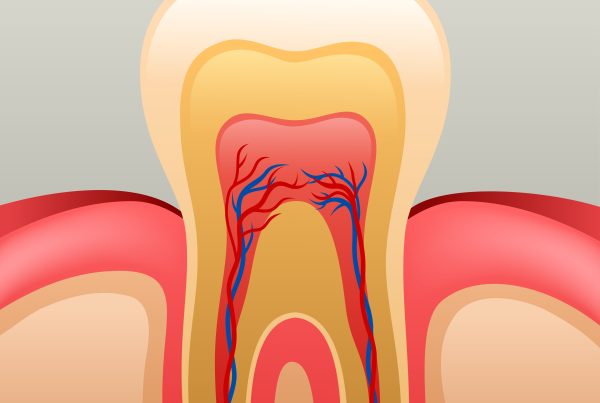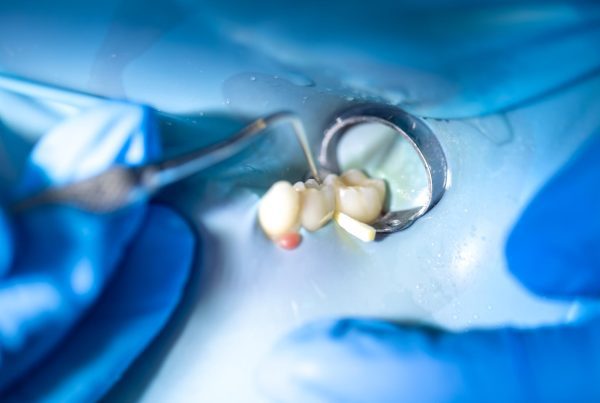Why Does My Tooth Still Hurt After A Root Canal?
Just had a root canal but still feeling pain? You're not alone. While root canals are meant to end tooth pain by removing infected pulp, some discomfort afterward is actually normal.
It can be frustrating when you expected relief but instead find yourself still reaching for pain medication. Many patients wonder if something went wrong or if they need to worry.
The good news? Most post-root canal pain is temporary. Your tooth and surrounding tissues need time to heal. However, persistent or severe pain might indicate an issue worth checking out.
If you're experiencing ongoing discomfort, don't hesitate to contact your dentist. They can determine if it's just part of the normal healing process or if additional treatment is needed to get you back to pain-free smiling.

How long is it normal to have discomfort following a root canal procedure?
The duration of discomfort following a root canal procedure can vary from person to person, and it is influenced by several factors. In many cases, some level of discomfort or sensitivity is normal immediately after the root canal due to the manipulation of tissues and the presence of residual inflammation. This initial discomfort is often manageable and tends to subside within a few days.
However, the complete resolution of symptoms may take some time. It is not uncommon for patients to experience mild sensitivity or discomfort for a week or two after the root canal. This lingering discomfort is typically part of the healing process as the surrounding tissues recover from inflammation and the tooth adjusts to its new, infection-free state.
If the discomfort persists or becomes more severe over time, it may indicate an issue such as an incomplete root canal, an undetected crack in the tooth, or other complications. In such cases, it is crucial to consult with your dentist promptly for a thorough examination and appropriate follow-up care. Dental professionals can assess the specific circumstances of your case and provide guidance on whether the discomfort falls within the expected timeframe or if further investigation is needed.
Why Does My Root Canal Tooth Hurt When I Put Pressure On It?
A hidden crack or fracture might not have been visible during your root canal. When you bite down, the crack can widen, causing pain.
If you have a crown on the tooth, it might be sitting too high or be misaligned. This creates uneven pressure when you bite, leading to discomfort.
Sometimes, not all infected pulp tissue is removed during the procedure, which can cause persistent inflammation.
Bacteria might have re-entered the tooth, causing an infection at the root tip (periapical abscess).
The discomfort might actually be coming from a neighboring tooth but feels like it's from the root canal tooth.
The tissues surrounding the tooth can remain inflamed for days or weeks after treatment.
Why Is My Root Canal Tooth Sensitive To Hot And Cold?
If your root canal was performed recently, the surrounding tissues may still be inflamed. This temporary sensitivity typically subsides within a few days to weeks as healing progresses.
If all infected pulp tissue wasn't completely removed during the procedure, remaining nerve tissue can still respond to temperature changes. This may require additional treatment to resolve.
A crack in the tooth or a damaged filling can allow temperature changes to reach sensitive inner tissues, causing discomfort. These small cracks may not be visible to the naked eye.
A new infection can develop at the tooth's root even after a root canal, especially if bacteria reenter through a damaged crown or filling. This can cause significant temperature sensitivity.
Sometimes the temperature sensitivity you feel isn't coming from the root canal tooth at all, but from a neighboring tooth with an untreated issue. The pain can radiate, making it difficult to pinpoint.
If your tooth hasn't received its permanent crown or restoration after the root canal, the temporary filling may not provide adequate insulation against temperature changes, resulting in sensitivity.
How can patients differentiate between normal post-procedure sensitivity and a more serious issue requiring attention?
Distinguishing between normal post-root canal sensitivity and a potentially serious issue involves paying attention to the duration, intensity, and nature of the discomfort. Mild sensitivity or discomfort in the immediate aftermath of a root canal is generally normal and can be managed with over-the-counter pain relievers. However, if the pain persists beyond a week or intensifies, if it becomes sharp or throbbing, or if it is triggered by stimuli like hot or cold substances, it may indicate an underlying problem. Swelling, persistent tenderness, or the development of new symptoms are also red flags. In such cases, it is crucial for patients to promptly seek professional dental evaluation and intervention to rule out complications such as incomplete root canal treatment, secondary infections, or structural issues with the tooth that may require attention for effective resolution.


Can the presence of persistent pain be an indication of a failed root canal?
Yes, persistent pain can indeed be an indication of a failed root canal. While it is normal to experience some discomfort immediately following the procedure, this should gradually diminish as the tissues heal. If the pain persists or becomes more intense over time, it may suggest that the root canal treatment was not successful in eliminating the underlying issue.
A failed root canal can occur for various reasons, including incomplete removal of infected pulp, the presence of additional canals that were not adequately treated, or the development of a new infection. In some cases, the tooth may also be re-infected due to a breakdown in the seal created during the initial procedure. It is crucial for individuals experiencing persistent pain after a root canal to seek prompt evaluation by a dental professional. Through a thorough examination and possibly additional diagnostic tests, the dentist can identify the cause of the ongoing discomfort and recommend appropriate steps for further treatment, which may involve retreatment of the root canal or other interventions to address the underlying issue.



